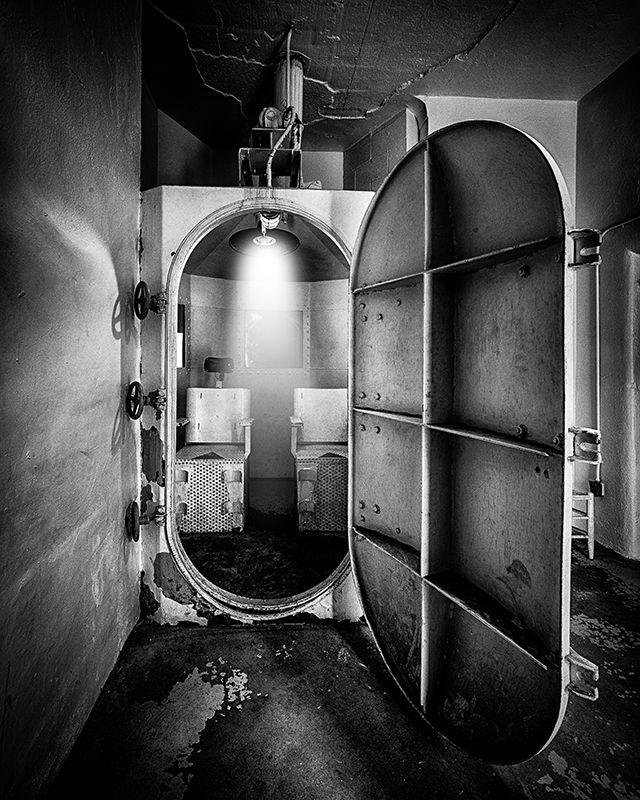Since 1980 the Roman Catholic Bishops of the United States have called for an end to the use of the death penalty in our country. Because of their loving and persistent pastoral guidance on this important life issue, eight states have voted through their legislatures or by election ballots to abolish its practice.
As of today, 19 states and the District of Columbia no longer sentence men and women to death; the most recent being Nebraska in 2015. California is now on the verge of joining the growing number of jurisdictions. This November, Californians will have the opportunity to step into the voting booth and cast their ballot to end the use of state sanctioned vengeance.
Our bishops understand that such a violent social practice does not promote the common good and seriously undermines the culture of life we all envision and pray for. Those who support the use of the death penalty claim that it restores the dignity and value of the victim whose life was taken in a violent manner. They say, that if one person is willing to take another person’s life, then the guilty party must pay the ultimate penalty. Supporters speak of a debt owed to society when a murder takes place, and that requiring payment on that debt is the only way to preserve law and order.
However, as a community of faith we believe that life and salvation is about more than a balance sheet and that we must ask ourselves: Does killing the criminal really restore dignity and honor to the victim? Does another violent act really enhance the lives of a victim’s family? Is capital punishment a truly constructive or appropriate method of dealing with crime? The bishops’ answer to these questions is no. In fact, in their Campaign to End the Use of the Death Penalty, our pastoral leaders raise a very good question: “Why do we kill people who killed people, to show that killing is wrong?”
Another important issue to consider is the fact that innocent persons have been falsely accused and executed for crimes they did not commit. There are district attorneys and supporters who argue that there is no proof of any innocent person ever being wrongly executed in our country since the reinstatement of the death penalty in 1976, but we should not waste our time debating this false argument.
For those proponents who often quote the Old Testament — “Life for life, eye for eye, tooth for tooth, hand for hand” (Exodus 21:23-24) — what is not clearly understood is that the passage refers, not so much to harsh penalties, but rather refers to protecting individuals from excessive punishments, such as those that are cruel, unreasonable and ineffective.
Those who believe in an “eye for eye, tooth for tooth” often fail to quote three other important biblical passages. In Genesis (4:15), God ensures that death will not be inflicted upon Cain who has killed his brother Abel. In this passage, God says: “‘If anyone kills Cain, Cain shall be avenged sevenfold.’ … So the Lord put a mark on Cain, lest anyone should kill him at sight.”
In Ezekiel (33:11) we read: “As I live, says the Lord God, I swear I take no pleasure in the death of the wicked man, but rather in the wicked man’s conversion, that he may live.” In the Sermon on the Mount of the New Testament Scriptures, Christ exhorts: “You have heard that it was said, ‘An eye for an eye’ and ‘a tooth for a tooth.’ But I say to you not to resist the evil-doer; on the contrary, if someone strikes you on the right cheek, turn to him and offer the left as well” (Matthew 5:38-39).
The Catechism of the Catholic Church takes justice into account when dealing with the issue of capital punishment and the right of public authorities to punish criminals with penalties commensurate with the crime. It reminds us of the importance of considering public safety and the loss suffered by a family. But, it also teaches that the punishment must redress the offense as well as contribute to the rehabilitation of the offender.
While “preserving the common good of society requires rendering the aggressor unable to inflict harm” (¬ß2266), it follows that “if bloodless means are sufficient to defend human lives ... public authority should limit itself to such means, because they better correspond to the concrete conditions of the common good and are more in conformity to the dignity of the human person” (¬ß2267).
This leaves us, then, with the challenge of finding a solution that punishes the convicted without violating his or her human dignity, while still satisfying the need to protect public order and defend society. For Christians, our distaste for the death penalty is founded in our belief that every person has an inalienable right to life, because each human being is made in the image and likeness of God (Genesis 1:27). Such a challenge should not be motivated by fear or anger, and must be more in line with the teachings of Christ’s call to love one another.
In seeking a humane solution, we understand that forgiving the condemned is not the same as exonerating him or her from guilt and that capital punishment ultimately damages all of us by continuing the downward spiral of violence that is all too common in our society. Punishments, therefore, must be educative, not vindictive.
So, let us always remember the loving words of St. John Paul II: “The new evangelization calls for followers of Christ who are unconditionally pro-life, who will proclaim, celebrate and serve the Gospel of life in every situation” (Pope John Paul II, Jubilee Homily to Prisoners, Rome, July 2002).
Andrew Rivas is the government and community relations director for the Archdiocese of Los Angeles.

